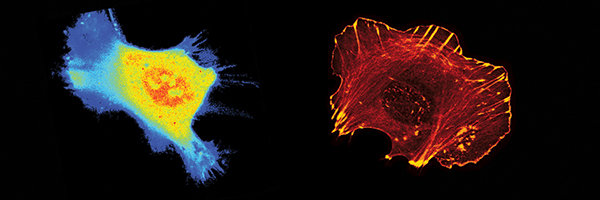
We have moved to the University of Münster!
-------------------------------------------
Please visit our new website at WWU
-------------------------------------------
.
.
Cells are frequently subject to mechanical forces. Keratinocytes in the skin, for instance, are exposed to forces from shear, pressure or stretch, endothelial cells in the blood vessels are subject to the shear forces of the blood flow; cells in our lungs feel forces from inflation, cells in the heart the rhythmic contractions of the heartbeat, and bone cells must bear forces from our weight. Of course, cells also generate their own intracellular forces as is obvious during cell division or cell migration.
Over the last years it has become apparent, that the ability of cells to sense these forces and to translate them into biochemical information is crucial for a wide range of biological processes, and also has important implications for diseases such as arteriosclerosis, osteoporosis or cancer. However, the subcellular mechanisms that underlie cells’ mechanosensitivity are largely elusive.
Our group investigates the molecular mechanisms of mechanotransduction by developing and applying innovative tools that address aspects of mechanobiology inaccessible to current technologies.